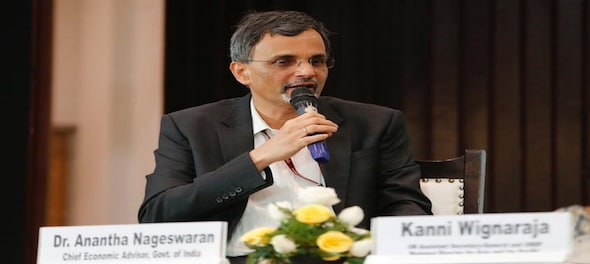
India's chief economic advisor V Anantha Nageswaran along with a group of economists have questioned rating agencies Fitch, S&P, and Moody's metrics. The economic advisor also questioned the World Bank’s World Governance Indicator.
Sovereign credit ratings, primarily by Fitch, Moody’s, and Standard & Poor’s (S&P), are important metrics for countries looking to raise financial resources through domestic and international financial markets. The three agencies rate around 120 countries each.
Credit rating agencies' ratings are seen as a credible metric of the credit risk associated with a sovereign. The level of risk, in turn, determines the risk premiums a sovereign would be expected to pay.
The CEA’s office has published a report, titled “Re-examining Narratives - a Collection of Essays”, which has raised questions on narratives about the Indian economy. The report questions the methodology of rating agencies Fitch, S&P, and Moody’s while rating a sovereign.
Earlier this month, S&P Global Ratings said India would become the world's third-largest economy by 2030 and the fastest-growing major economy in the next three years.
However, India's sovereign rating has remained static at BBB- by S&P itself as well as by Fitch and it has had a Baa3 rating from Moody's for the past decade and a half. This is the lowest investment grade.
A better credit rating process will save billions in funding costs for developing economies, according to Nageswaran. "If the credit rating process is made transparent, many countries may see an upgrade," he said.
According to the report, the World Bank's Worldwide Governance Indicators (WGIs), emerge as an important determinant of a developing economy’s credit rating. The report called WGI a non-transparent, perception-based metric derived from a small group of experts and that it does not represent a country’s “willingness to pay”.
The World Bank, in May this year, announced a new methodology for assessing the business climate in up to 180 countries.
The report noted that the rating methodologies reveal that half the rating depends on qualitative variables like "willingness to pay". The quantifying impact of qualitative factors on credit ratings becomes tough due to opaqueness in methodology.
Economists believe that reform in the credit rating process is the need of the hour. Transparent credit rating, based on hard data may result in credit rating upgrades for many sovereigns and thus help countries access private capital to address climate change challenges.
The report said that reforming the sovereign rating process will correctly reflect the default risk of developing economies and save them billions in funding costs.
(Edited by : Amrita)
Check out our in-depth Market Coverage, Business News & get real-time Stock Market Updates on CNBC-TV18. Also, Watch our channels CNBC-TV18, CNBC Awaaz and CNBC Bajar Live on-the-go!


'Borrowed' leaders: Congress hits out at AAP for not fielding their own candidates in Punjab
Apr 28, 2024 9:53 PM
EC asks AAP to modify election campaign song and Kejriwal's party is miffed
Apr 28, 2024 9:25 PM

